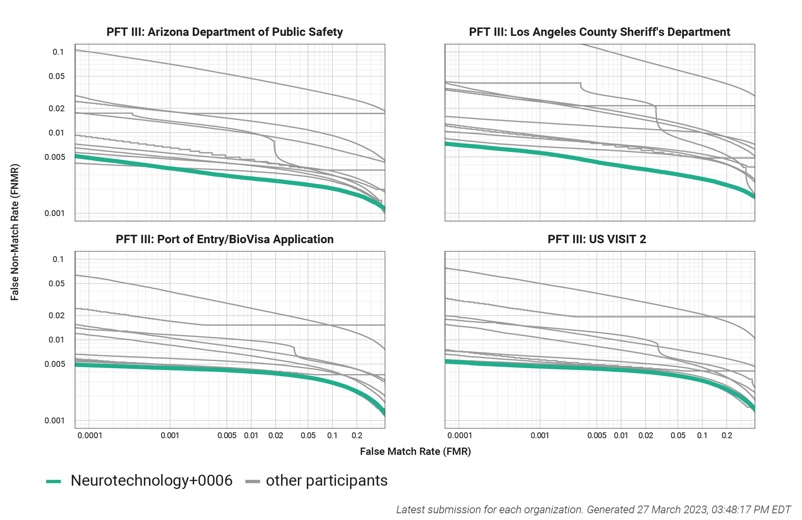Neurotechnology, a provider of deep learning-based solutions and high-precision biometric identification technologies, today announced that the company returned to the top ranking in the National Institute of Standards and Technology (NIST) Proprietary Fingerprint Template III (PFT III) evaluation. The PFT III evaluation presents fingerprint verification benchmarks using four different datasets of fingerprints, in almost all of which Neurotechnology’s latest algorithm submission presented the most accurate scores.

For several years Neurotechnology’s algorithms were consistently leading the PFT III evaluations, however the company’s top position was challenged a few months ago. With this latest submission, Neurotechnology regained the leading position, demonstrating decades of experience in developing top-level algorithms.
“We were intrigued to see other submissions challenge our algorithm, which has been the leader in the evaluation for years,” said Evaldas Borcovas, biometric research lead at Neurotechnology. “As competition arises, so does our team’s motivation and dedication to push the boundaries of our technology even further, and we are thrilled to be at the top of the PFT III evaluation once again.”
The PFT III showcased results consisting of two criminal case datasets from the Arizona Department of Public Safety and the Los Angeles County Sheriff’s Department as well as two border control datasets from the US Department of Homeland Security. Fingerprint matching experiments were undertaken using each dataset separately with multiple benchmark scores for each participant. Neurotechnology’s latest algorithm submission performed as the most accurate in the majority of experiments across all four datasets.
Neurotechnology, as a multi-biometric solutions developer, is also an active participant in other NIST evaluations of different biometric modalities. Over the years, the company’s algorithms have been among the top performers in evaluations including MINEX III, IREX 10, FRVT, ELFT, and SlapSeg III.
About Neurotechnology
Neurotechnology is a developer of high-precision algorithms and software based on deep neural networks and other AI-related technologies. The company was launched in 1990 in Vilnius, Lithuania, with the key idea of leveraging neural network capabilities for various applications, such as biometric person identification, computer vision, robotics, and artificial intelligence.
The company’s solutions and products have been used in more than 140 countries worldwide and in many national-scale projects for national ID, passports, elections, and border control, including India’s Aadhaar program, the Ghana General Elections, the Democratic Republic of the Congo Voter Deduplication and other projects that collectively process the biometric data of nearly two billion people.